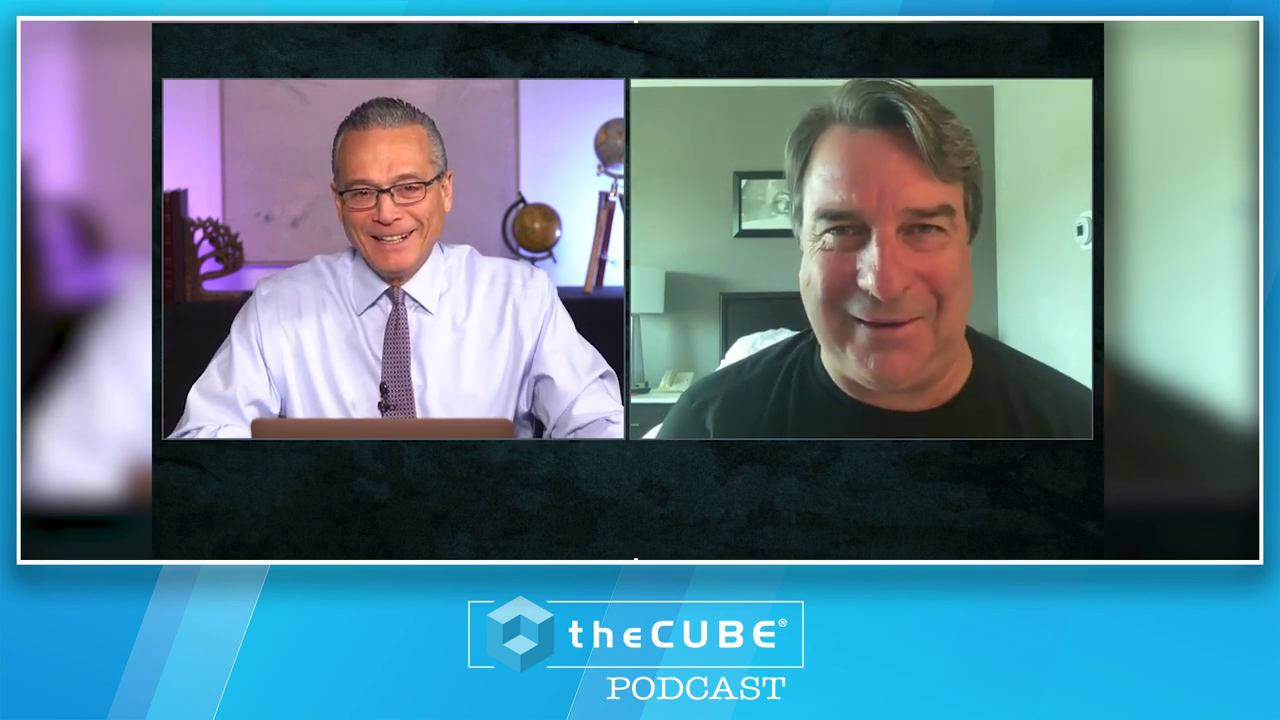 AI
AI
 AI
AI
 AI
AI
There was no shortage of developments in the world of technology this week, but industry analysts John Furrier (pictured, right) and Dave Vellante (left) kicked off the latest episode of theCUBE Podcast by touching on the war in Israel over the past week.
It’s been a horrific development, one that has personally impacted many in the tech industry.
“I’ve talked to at least a few founders already on the phone,” Furrier said. “Multiple founders in the middle of rounds of funding with their teams over there. Every company that’s in tech has a tech team in Israel.”
The Hamas-Israeli war is also being fought in cyberspace, an angle Furrier said was not to be ignored. But the entire situation is incredibly concerning, especially for those with close relations on the ground, Vellante added.
“Of course, the greatest concern for both the war in Ukraine, and now in Israel, is the escalation. This is how world wars start,” he said.
On a very different note, Furrier attended the SAS Championship Pro-Am and was paired with pro golfers Pádraig Harrington and Justin Leonard. The SAS tournament has a big purse and attracts big names, and Furrier had a chance to meet the team behind SAS.
“A little fun fact is that the Google culture, the Googleplex, was modeled after SAS,” Furrier said. “It’s a huge campus, very academic feel … I think it’s a pretty special company. I’m very impressed with the culture, but also that they’ve got tech chops. I think AI is going to be a secret weapon for them.”
That’s because SAS has been around for so long and has relationships with customers in every industry vertical. The data in these vertical markets is where the intellectual property is, something theCUBE has been saying for years, according to Furrier.
“The old model, if you remember Dave, they just have to rip and replace old, bringing the new with AI,” Furrier said. “You can actually abstract away that old technology and build bots, co-pilots, or code assistants to manage software and then bring in new data functionality.”
Still, questions about doing that remain. Is artificial intelligence actually a playing field leveler?
“Or is it something that is actually going to create greater disparity between the haves and the have-nots? There’s conversations around the lack of talent and how to get an AI pro — you have to give him or her a million-dollar signing bonus,” Vellante said.
In June, Snowflake Chief Executive Officer Frank Slootman was talking to Vellante about Snowflake acquiring the search startup Neeva Inc. and even commented on the acquisition of MosaicML Inc. Slootman said that a big rationale behind the acquisitions was getting talent.
“Which is kind of obvious, but people talk about overpaying for that talent. Well, not really,” Vellante said. “You need to have that. They’re overpaying for these companies, but he’s like, ‘It’s worth it to get the talent.’ So will that create separation? Or is AI going to be so ubiquitous and widely available? And relatively easy to implement? I don’t want to say easy, but it does simplify software development in a lot of ways.”
A future scenario could see one train AI and treat the code base as data before importing the code, according to Furrier. From there, it would learn and essentially code on its own.
“You just tell it what to do. I think that’s going to help in areas where there are short resources,” Furrier said. “I was talking to a guy who used to run Citigroup, which is a huge IT shop, billions of overhead that he runs budget-wise. And he says they can’t hire COBOL programmers.”
Instead, they train AI to be a COBOL language. They ingest the language to know every syntax, Furrier added.
“Guess what? Then you incorporate the code base with the language merge, and you now have a smart co-pilot or bot — chatbot, codebot — that can code the areas that you would just instruct someone to code. You don’t need a COBOL programmer,” he said. “That’s a gap, obviously, with older technology. With new technology, I think you’re going to see a democratization where you don’t have to be that person.”
Eric Herzog, CMO of Infinidat
David Strom, cybersecurity reporter at SiliconANGLE Media
Justin Leonard, professional golfer
Padraig Harrington, professional golfer
Raj Verma, CEO of SingleStore
David Duval, professional golfer
Marc Andreessen, general partner at Andreessen Horowitz
Walter Isaacson, professor of history at Tulane University
Bryan Harris, EVP and CTO of SAS
David Floyer, CTO and co-founder of Wikibon
Rob Enslin, co-CEO at UiPath
Daniel Dines, co-CEO at UiPath
Michael Wilke, senior consultant product marketing for data protection at Dell Technologies
Rob Emsley, director of data protection marketing at Dell Technologies
Don’t miss out on the latest episodes of “theCUBE Pod.” Join us by subscribing to our RSS feed. You can also listen to us on Apple Podcasts or on Spotify. And for those who prefer to watch, check out our YouTube playlist. Don’t wait any longer — tune in now and be part of the conversation.
Support our mission to keep content open and free by engaging with theCUBE community. Join theCUBE’s Alumni Trust Network, where technology leaders connect, share intelligence and create opportunities.
Founded by tech visionaries John Furrier and Dave Vellante, SiliconANGLE Media has built a dynamic ecosystem of industry-leading digital media brands that reach 15+ million elite tech professionals. Our new proprietary theCUBE AI Video Cloud is breaking ground in audience interaction, leveraging theCUBEai.com neural network to help technology companies make data-driven decisions and stay at the forefront of industry conversations.